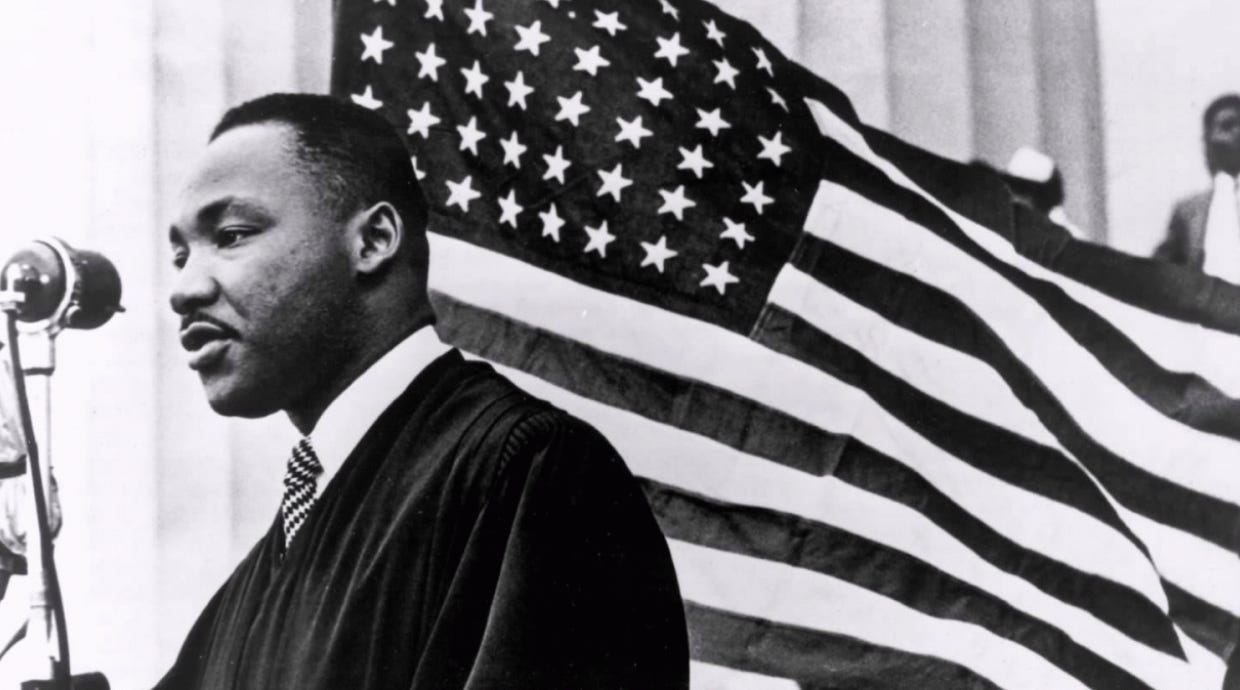I'm trying to understand why a person's race should be a factor in college admissions
The Supreme Court's dissidents fail miserably to make their case in favoring race-based admissions
Would the Rev. Martin Luther King be shunned today because of his views on a color-blind society?
The central question in today’s Supreme Court’s decision forbidding using race as an open door to a college education comes down to this:
Is a “diverse learning environment” more important than an individual right to get into college? Should a person’s race reduce or eliminate his chances? Or favor another person’s?
The dissenters in the court’s 6-3 decision say so. In effect, argued that colleges can discriminate against Asians and whites in order to give blacks a better change of getting into college.
It boils down to that when you read page after page of dissents. You get a better understanding of their poison when you sweep away all their legalisms, posturing and incoherence.
The dissents—liberals all—clearly argue that one group of people can be excluded from the pursuit of happiness based on their skin color. They interpret the Constitution’s 14th Amendment in a way that a group’s collective rights are more important in this case than an individual’s rights.
That’s not what the 14th Amendment meant when it says, “…nor shall any State deprive any person of life, liberty, or property, without due process of law; nor deny to any person within its jurisdiction the equal protection of the laws.” [My emphasis.]
In doing so, they not only misinterpret the Constitution, but the Rev. Dr. Martin Luther King’s dream of a colorblind society in which people are judged by the “content of their character.” The dissidents cherry pick King’s words as if he meant to say that “unity” is more important, even at the cost of individual rights. Would King be shunned these days for praising merit?
The dissidents criticized the majority opinion for cementing, “a superficial rule of colorblindness as a constitutional principle in an endemically segregated society where race has always mattered and continues to matter.” Superficial? It was this “superficial” rule that eliminated legally sanctioned discrimination in housing, schools and public accommodations.
Reading through the dissenting opinions, I’m struck by how much they read like sociology, rather than the law. Page after page are devoted to recount the history of racism in America. They want to cement into law the theory that racism is “systemic”, seemingly without end and part of every white person’s genome. Put simply, they assert that society remains “inherently unequal.”
Sound familiar? It should. Does “systemic racism” ring a bell?
Yes, horrific assaults on the rights and humanity of black people have been America’s sin. But today is different, as I argue in “Regressive Progressives want us to return to the 1950s.” Giving up an essential American value today isn’t justified by a sociological reading.
In another line of reasoning, the dissidents assert that they’re asking that race be only a part of the admissions process. They advocate for considering socioeconomic factors along with race. This they argue, are “holistic admissions programs like the one that the University of North Carolina,” one of the defendants.
They say, “This limited use of race has helped equalize educational opportunities for all students of every race and background and has improved racial diversity on college campuses.”
I agree that targeting admissions based on such matters make sense, but the idea that race should matter at all violates where we have come in America after centuries of struggle. The whole concept of “race” is nonsense to start with in my view.
A policy that uses race is today widely viewed as unfair. It’s so obviously unfair, that all the rhetoric about diversity cannot overcome the importance of fairness All the dissidents’ contortions to justify unfairness is easily recognized for what it is: Racism itself.


